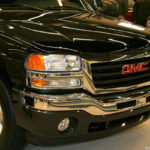At the Norris Law Firm, PLLC, we advocate for clients who have been victimized by fraudulent or deceptive auto sales practices and other NC auto dealer fraud.
The sale of an automobile touches on a wide range of federal and state laws that are designed to protect consumers from deceptive and unsavory practices that are all too common in that industry. If the dealer fails to comply with these laws, the consumer may undo the purchase or lease and get his or her money back or has a right to sue for damages incurred from the dealership’s wrongful conduct.
NC Auto fraud is a very broad area, and car dealers and others can adapt their actions to the laws that are intended to regulate the industry. Because car dealers sell cars every day, while you may buy a car only once every three to four years, if not longer, it is easy to see how the cards might seem stacked against the consumer. If you think you have been deceived in any way in connection with the purchase, finance, or lease of your car or truck, or if you purchased a vehicle from a North Carolina car dealer that has suffered accident damage that was not disclosed to you at the time of sale, an inaccurate odometer, or other undisclosed condition, you may have legal recourse. You can take active steps to protect yourself and possibly avoid the need for an attorney, but if you have already been taken advantage of then we are here to help. Contact us today to discuss your individual situation.
Examples of NC Auto Dealer Fraud
There are many different types of fraud and different actors that perpetrate it, including insurance companies, car dealers and manufacturers, extended warranty and service contract providers, and automotive finance companies. Below is a list of things to watch out for. While not all of these items necessarily constitute fraud, they are all “warning signs” that can signal potential misconduct. If you purchased your vehicle in North Carolina and think you may be a victim of automotive fraud, contact us today.
Spot Delivery Sales – This type of NC auto fraud occurs when a dealer manipulates a buyer into believing they have been financed at an agreed upon interest rate.
Financing Fraud – There are many variations on this type of auto fraud in North Carolina. Some of the more common include incorrectly calculating or utilizing credit score reporting, deferred down payments, or negative equity, unlawfully inflating sale prices for credit customers, illegal use of conditional delivery agreements, and engaging in “packing” schemes.
Undisclosed Damage or Mechanical Problems – This type of auto fraud can involve failing to reveal an accident, failing to reveal that a car was a returned lemon or failing to reveal that the car was a rental return or salvage vehicle. Laws regulating North Carolina auto fraud prohibit auto dealers from deliberately misleading consumers. That is why we urge car buyers to ask directly whether their proposed purchase was in an accident. The car dealer is required to tell you.
Undisclosed Vehicle History – Selling a vehicle without disclosing its previous history is a violation of the law.
Failure to make certain financial disclosures in auto leasing is a violation of the law.
Loan packing – Adding unwanted products to bump up monthly payments is a violation of the law.
Odometer fraud – This type of fraud involves setting the odometer back to a lower and more salable number.
Title fraud – Title fraud may be part of other schemes, such as failure to disclose that a vehicle was a previous rental car or was a lemon bought back by the manufacturer.
Backdating contracts – This type of fraud forces the customer to pay interest for a time when the contract is not in effect.
Changes to the advertised price – This occurs when the dealer inflates the advertised price to include other items that are really optional.
False advertising
Bait & Switch sales – This type of auto fraud occurs when a dealer switches the price, vehicle year, make, or model of an agreed upon or advertised auto, including its finance terms which could mean switching from a sale to a lease structured financing contract.
Fake contests or “specials”
Fraud relating to a trade-in vehicle. This type of NC auto fraud includes practices such as prematurely selling a trade-in (often in connection with a spot delivery sale), failure to properly value or credit the trade-in, or financing a trade-in’s negative equity with the purchase price of the new vehicle without disclosure.
We understand NC auto fraud, and aggressively represent victims of such scams.
To learn how we may be able to help you, contact us today for a free case review.


